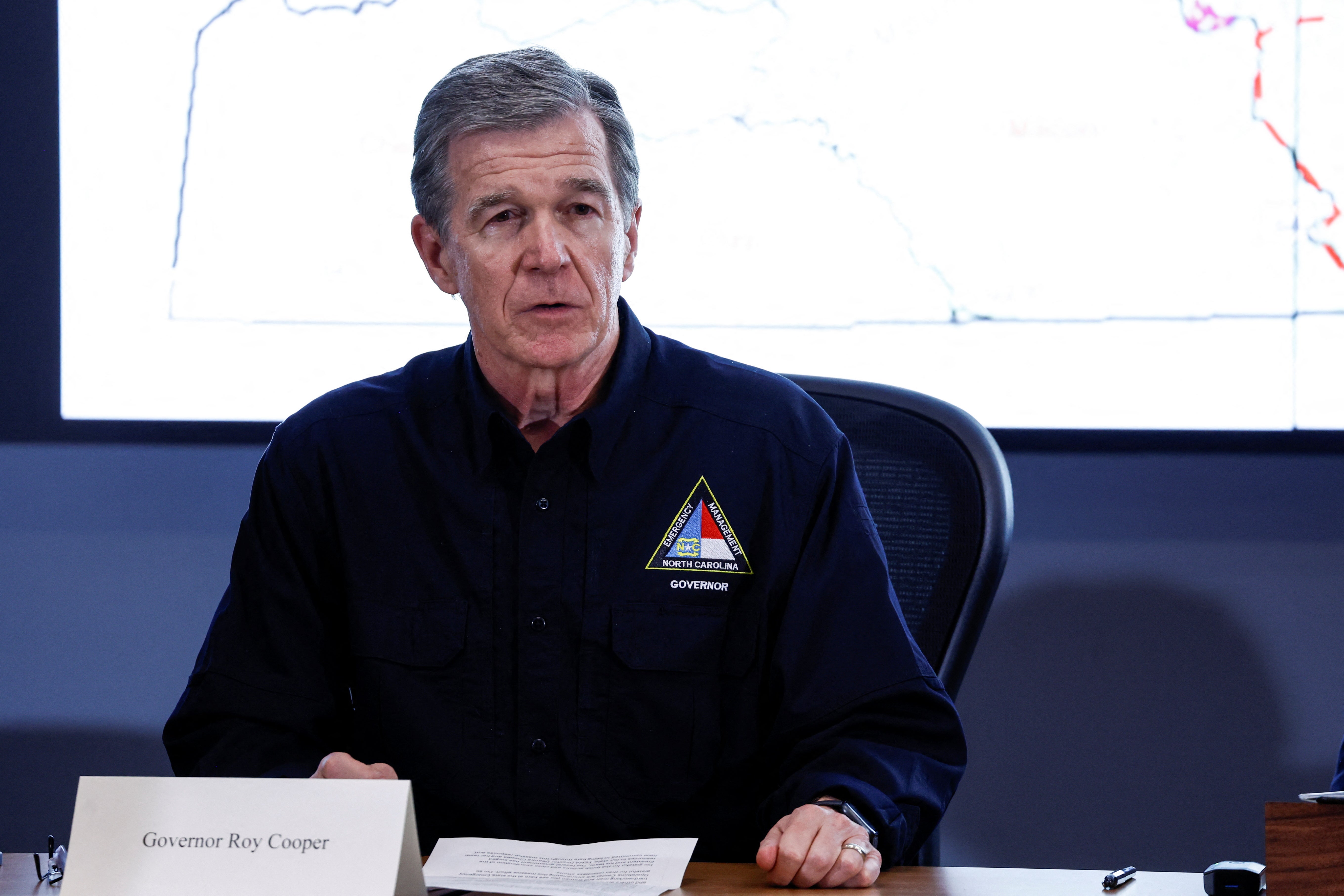Nearly 90 people in North Carolina are still missing weeks after devastating Hurricane Helene
North Carolina has seen 95 deaths related to impacts from the historic storm
Your support helps us to tell the story
From reproductive rights to climate change to Big Tech, The Independent is on the ground when the story is developing. Whether it's investigating the financials of Elon Musk's pro-Trump PAC or producing our latest documentary, 'The A Word', which shines a light on the American women fighting for reproductive rights, we know how important it is to parse out the facts from the messaging.
At such a critical moment in US history, we need reporters on the ground. Your donation allows us to keep sending journalists to speak to both sides of the story.
The Independent is trusted by Americans across the entire political spectrum. And unlike many other quality news outlets, we choose not to lock Americans out of our reporting and analysis with paywalls. We believe quality journalism should be available to everyone, paid for by those who can afford it.
Your support makes all the difference.Nearly 90 people remain missing in North Carolina nearly three weeks after Hurricane Helene brought historic rainfall to the southeastern state.
While significant progress has been made to reopen impassable roads and restore power and water systems, the North Carolina Department of Public Safety told The Independent on Wednesday that 89 individuals remain unaccounted for.
“Please note that this is not a definitive count, because the task force’s work is dependent on information collected from a variety of sources, including direct reports from the public, local governments, law enforcement and non-profit partners,” it said.
That tally is down by three from Tuesday when Governor Roy Cooper told reporters the department’s task force had determined 92 people were missing.
“The number will continue to fluctuate as more reports come in,” he said, “and others are resolved.”
Cooper pointed out that while many people located their loved ones as cell phone service returned, that information does not usually make it back to the state’s information line.
The department and law enforcement’s search and rescue efforts have continued this week.

“The road to recovery will be long and we will be with western North Carolina every step of the way,” said Cooper.
Helene tore through the Carolinas and four other states, leading to the deaths of more than 230 people. In North Carolina, there were 95 confirmed fatalities due to impacts from the storm. Officials said that the majority of those deaths were related to flooding, landslides, blunt force, and flooded cars. They were going through death records to pin down other related causes.
While temperatures in the area were balmy in September, the weather in the western mountains started to cool a bit this week, with low temperatures in the mid-30s.
In response to changing conditions, the state’s director of emergency management, William Ray, said there’s been a shift in the types of supplies they aim to provide going forward. And Cooper said it is critical to ensure the state protects people as the weather turns. He said it was working “hard” to provide temporary housing, blankets, coats, fuel oil, and heaters.

As of Tuesday, FEMA had approved 77,000 people for the agency’s disaster assistance, which includes funds for temporary housing and repairs. More than $99m has already been paid to North Carolina residents. On Wednesday, FEMA also expanded eligibility for that assistance to 12 more counties.
FEMA Administrator Deanne Criswell and the governor visited Yancey County on Wednesday, as snow fell on its Big Bald mountain.
Criswell was also with him at the Tuesday press briefing, and both leaders discussed the spread of rampant misinformation and its consequences.
Over the weekend, FEMA made operational changes to keep its personnel safe, but workers were knocking on doors again this week. A man arrested in Rutherford County on Saturday was accused of threatening FEMA responders. According to WGHP-TV, he said he believed social media reports that FEMA was refusing to help people, but later realized that wasn’t the case.
FEMA’s operational changes did not affect ongoing search and rescue and life safety operations and Cooper said law enforcement assistance has been made available to FEMA and other responders as needed.

Criswell said it was “heartbreaking” to see words and acts of hate, and that the ongoing spread of misinformation about FEMA operations is “not OK.” Still, she said the more than 2,000 FEMA workers would not give up their mission of helping people.
“We are not going anywhere,” said Criswell.
Cooper took a similar tone, calling the persistent flow of misinformation about recovery efforts “dangerous.” In addition to leading to threats and intimidation, he said it breeds confusion and demoralizes the FEMA members who are working on the ground.
Cooper explained that the misinformation just hurts the people of western North Carolina.
“If you’re participating in spreading this stuff, stop it,” he said.

Join our commenting forum
Join thought-provoking conversations, follow other Independent readers and see their replies
Comments